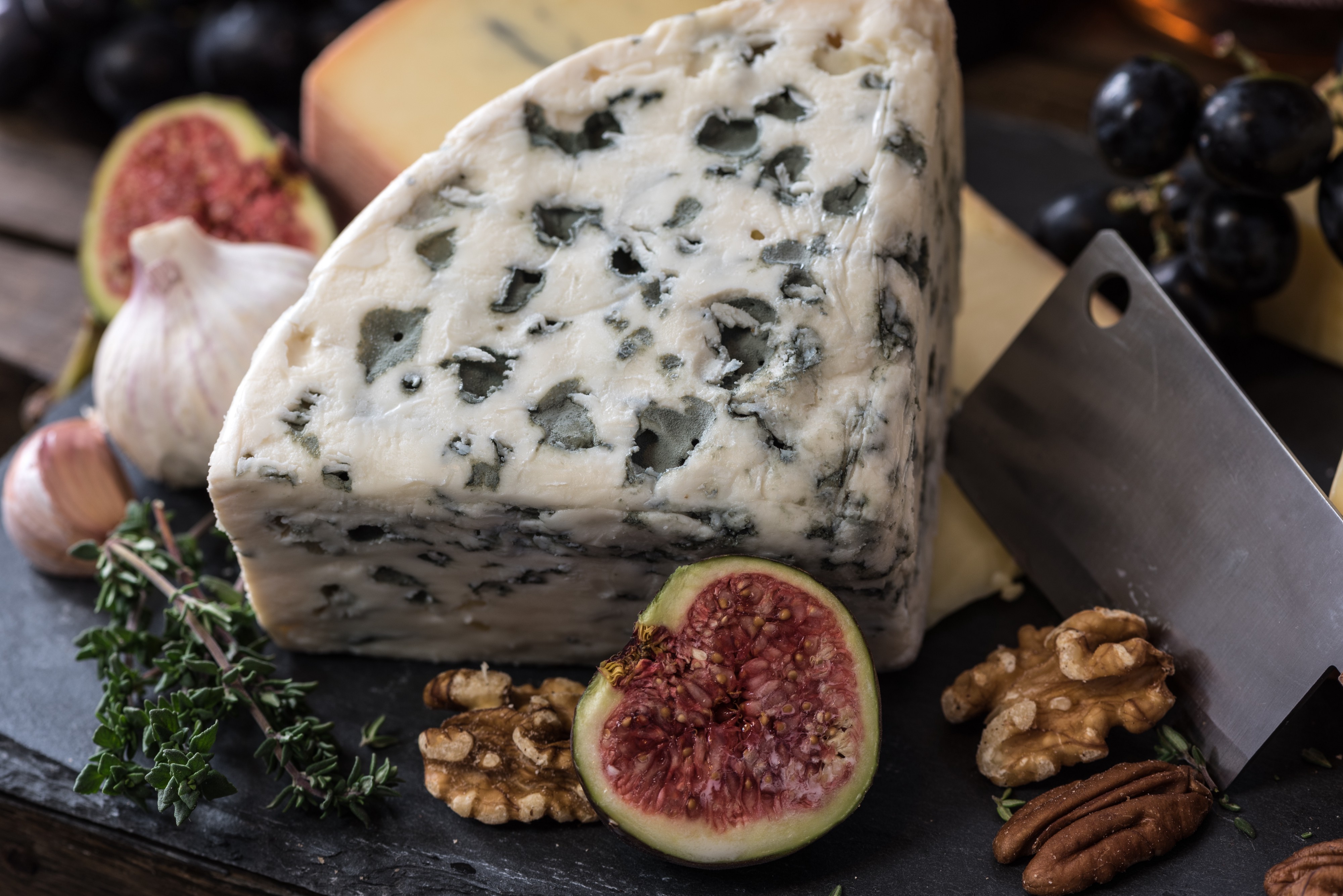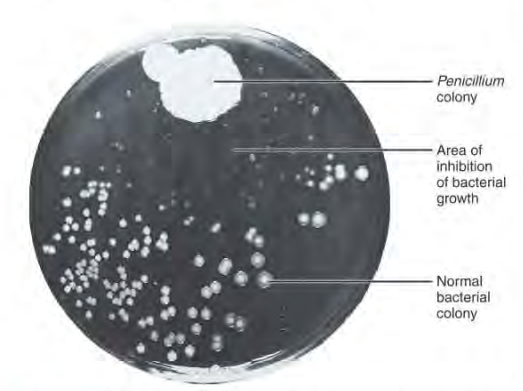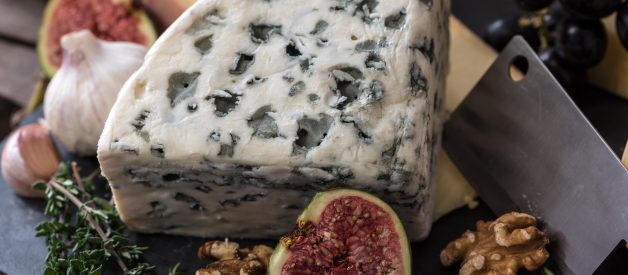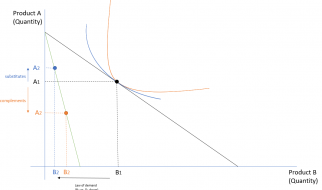You are no doubt familiar with penicillin ? 90 years after its discovery, it is still among the most-prescribed antibiotics. And you probably know that it is a natural product, produced by a bluish mold that grows on bread and also gives blue cheeses their distinctive color and flavor.
Is blue cheese a food you might want to eat for antimicrobial benefits? Or conversely, one that might perturb a healthy gut microbiome by wiping out beneficial bacteria?
 This is a blue cheese. Photo by Jez Timms on Unsplash
This is a blue cheese. Photo by Jez Timms on Unsplash
The genus Penicillium contains over 300 species. Only a few are known to produce penicillins, including P. griseofulvum, P. dipodomys, P. flavigenum, P. nalgiovense, P. chrysogenum and notably P. rubens, the strain with which Fleming made his famous discovery.
 Here?s what Fleming?s discovery looked like: no bacteria grew near a contaminating colony of Penicillium. From Penicillium Fungi
Here?s what Fleming?s discovery looked like: no bacteria grew near a contaminating colony of Penicillium. From Penicillium Fungi
The main cheese-making Penicilliums ? roqueforti (blue cheese), camemberti, (Camembert and Brie) and glaucum (Gorgonzola) ? are not penicillin producers. They do produce other antibacterial metabolites ? as well as human toxins and allergens ? but no medically useful antibiotics.

P. chrysogenum, From Penicillium chrysogenum
Even if you ate cheese bearing a penicillin-producing strain, you would get no medical benefit. The dose would be too small, and what little you ingested would be quickly degraded in stomach acid.
Aside from antibiotic production, fungi such as Penicillium species are found in the gut microbiome, and presumably could have beneficial or harmful effects. We don?t really know enough about the gut ?mycobiome? to say.
However, Penicillium species are not prevalent (Saccharomyces, Malassezia, and Candida dominate), and probably do not stably colonize the gut ? they don?t grow at body temperature. Caves filled with milk products are their preferred habitat.
Although blue cheese is nutritious, there is no reliable evidence of any particular health benefits from eating it. One report claims that highly ripened cheeses inhibit the proliferation of leukemia cells in Petri dishes, but that is no kind of evidence that these cheeses prevent cancer. Lots of things inhibit isolated cancer cells but have no benefit in human bodies.
Other studies show that cheeses produce anti-inflammatories and the polyamine spermidine, but the dots between these tidbits of information and actual health outcomes have not been connected.
After all, we all know that carrots are good for you and carrots are full of beta-carotene. Beta-carotene is a powerful anti-inflammatory and prevents cancer in lab studies, but when tested in humans it was found to increase cancer and overall mortality. There are rarely any straight lines between lab results and real-world outcomes.
But that is no reason not to enjoy blue cheeses. They are nutritious, and despite their high fat content, show no evidence of negative effects on cardiac and metabolic health. And they are delicious. They just won?t cure any stomach bug that you might have.


